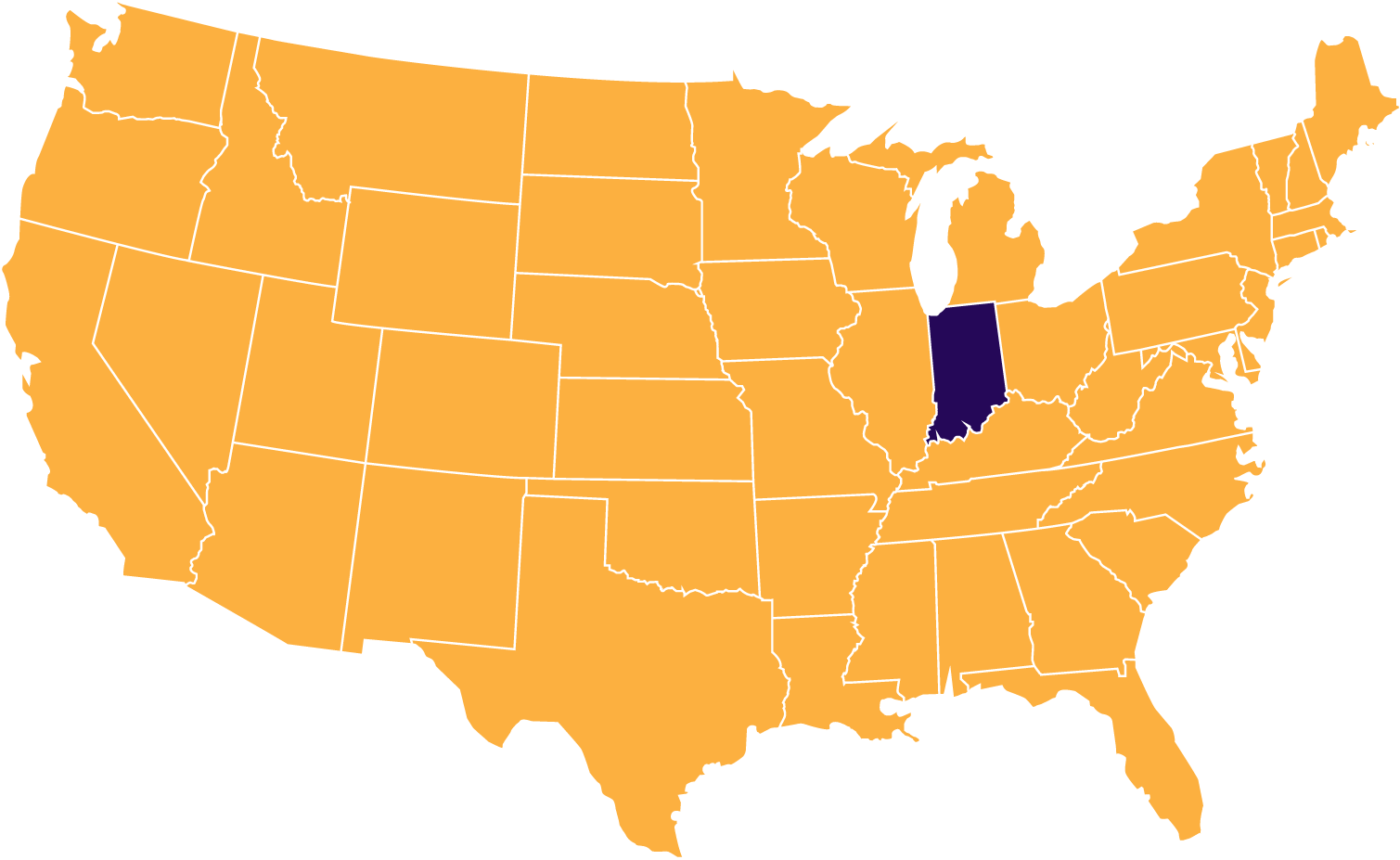Caring for an elderly parent can be challenging, especially when you live in a different state. The distance can make it difficult to provide the necessary care and support that your loved one may need. However, with careful planning and the right strategies in place, it is possible to ensure that your loved one receives the care they deserve, even from afar. In this blog post, we will explore various strategies to help you care for your loved one in Indiana from out of state, including assessing their needs, exploring home care agency options, leveraging technology for remote care coordination, building a local support network, navigating legal and financial considerations, maintaining emotional connection, planning for emergencies, and seeking support for yourself as a caregiver.
Assessing Your Loved One’s Needs and Resources
To effectively coordinate care for your loved one from another state, a thorough assessment of their health, capabilities, and daily living requirements is crucial. Start by evaluating their physical condition and mental acuity to understand their level of independence and the types of support they may need. This includes identifying any help they require with ADLs, such as dressing, bathing, and mobility, as well as IADLs like managing finances, shopping, and meal preparation. Additionally, consider the resources they currently have access to, including local family members, friends, and community services that can play a role in their care. Documenting this information will create a clear picture of the care your loved one needs, which is instrumental in planning and implementing the most appropriate and effective care strategy. This groundwork is fundamental to ensuring that subsequent steps, like choosing a home care agency or leveraging technology for care coordination, are tailored to meet their specific needs.
Exploring Home Care Options in Indiana
Finding the right home care agency in Indiana is a critical step in ensuring your loved one receives the personalized care they need. Start by researching agencies within their local area, prioritizing those with high ratings and positive feedback from other clients. It’s important to compare the range of services offered by each agency, focusing on essential services such as bathing assistance, meal preparation, and companionship that align with your loved one’s specific needs. Additionally, scrutinize the pricing models of different agencies to understand what fits best within your budget without compromising the quality of care. Making inquiries about the qualifications and training of caregivers, as well as the agency’s policies on handling changes in home care needs, will further aid in selecting an agency that is flexible and capable of adapting to your loved one’s evolving requirements. Establishing clear communication with potential agencies will help clarify any concerns and ensure they are a suitable match for providing the compassionate and professional care your loved one deserves.
Leveraging Technology for Remote Care Coordination
In today’s digital age, technology offers innovative solutions to bridge the distance between you and your loved one in Indiana. By integrating video conferencing tools and secure messaging applications, you can facilitate face-to-face interactions with their caregivers, ensuring a personal touch despite the miles. Employing care management software allows you to track their health updates, medication schedules, and daily activities in real-time. This technological approach not only keeps you informed but also empowers you to participate actively in decision-making processes related to their care plan. Furthermore, setting up smart home devices in your loved one’s residence can enhance their safety and comfort, providing you with additional peace of mind. These devices can monitor movement, alert for falls, and ensure that doors are locked, or appliances are turned off, thus preventing potential accidents. Embracing these tech-driven strategies can significantly improve the coordination of your loved one’s care, making it more efficient and responsive to their needs.
Building a Local Support Network
Cultivating a network of local support is a pivotal aspect of ensuring comprehensive care for your loved one in Indiana, particularly when you are managing from another state. Initiate connections with individuals and community groups nearby who can offer a helping hand or companionship to your loved one. Engage with neighborhood associations, local senior centers, and faith-based organizations, as they can be invaluable resources for both social engagement and practical support. Also, consider reaching out to extended family members or friends living close to your loved one who can periodically check in on them. This network can serve as your eyes and ears on the ground, providing you with updates and alerting you to any immediate needs your loved one might have. Introducing your loved one to these local contacts and integrating them into their daily life can significantly enhance their sense of community and well-being, ensuring they feel connected and supported even in your absence. This approach not only reinforces their safety net but also enriches their social life, contributing to their overall happiness and quality of life.
Navigating Legal and Financial Considerations
In ensuring the well-being of your loved one from afar, legal, and financial planning are key elements that cannot be overlooked. Acquiring the right legal authority, such as a power of attorney, enables you to make crucial health and financial decisions on behalf of your loved one. This step is fundamental in proactive planning, safeguarding their interests and facilitating the seamless management of their affairs. Additionally, it’s vital to establish advanced directives, which clearly outline their healthcare preferences in various scenarios, ensuring their wishes are respected.
On the financial front, creating a sustainable plan for your loved one’s care necessitates a detailed review of their assets, income, and potential benefits they may be eligible for, such as Medicare or Medicaid in Indiana. Consulting with a financial advisor who has experience in elder care can provide tailored advice to maximize resources and identify strategies to afford necessary services, including those provided by home care agencies. Planning for potential long-term care needs early on is crucial to avoid financial strain and ensure that your loved one receives the quality of care they deserve without compromising their financial security. Engaging in this dual planning process will establish a solid foundation for managing your loved one’s health and financial well-being effectively.
Regular Visits and Maintaining Emotional Connection
Scheduling trips to Indiana to see your loved one in person plays a critical role in nurturing your relationship and understanding their evolving needs. These visits are more than just check-ins; they’re opportunities to share experiences, create lasting memories, and show your love and support in tangible ways. During your stay, engage in activities that your loved one enjoys, whether it’s taking a walk in their favorite park, cooking a meal together, or looking through old photo albums. Providing comfort to your loved one and giving you insights into their daily life and any adjustments that might need to be made to their care arrangements. Prioritize these visits not just for the practical aspects of caregiving but as essential components of keeping your bond strong and ensuring your loved one feels cherished and connected despite the physical distance.
Emergency Planning for Sudden Needs
Having an emergency plan in place is crucial when caring for your loved one from out of state. Start by compiling a comprehensive list of local emergency contacts, including neighbors, nearby relatives, their primary care physician, and the nearest hospital. Also, ensure they have easy access to these contacts, possibly through programmed numbers on their phone or a list prominently displayed in their home. Establish a clear, step-by-step protocol for different scenarios, whether it involves a health scare, a power outage, or any other critical situation that may require immediate attention. Inform all stakeholders in their care network about these protocols to ensure everyone knows how to act swiftly and efficiently. Additionally, investigate local emergency services or community resources in Indiana that specialize in elder care emergencies, ensuring that you have all necessary information on hand. This preemptive approach will help minimize confusion and delay, ensuring that your loved one receives prompt and effective assistance should an unexpected situation arise.
Seeking Support for Yourself as a Caregiver
Managing the care of an elderly parent from a distance is not only logistically challenging but also emotionally taxing. It’s essential to acknowledge the impact this responsibility can have on your own well-being. Seeking out caregiver support groups can offer a sense of community and understanding from others navigating similar challenges. These groups provide a space to share experiences, strategies, and emotional support, which can be incredibly reassuring. Additionally, counseling services can help in managing stress, anxiety, or feelings of guilt that may arise. Engaging in self-care activities is equally important; this could range from regular physical exercise, which helps in reducing stress, to meditation or hobbies that keep you grounded. Remember, your ability to care effectively for your loved one is intrinsically linked to your own health and happiness. Therefore, investing in your well-being is not an act of selfishness but rather a crucial aspect of being a compassionate and effective caregiver.
XoXo
Changes Home Care Team






